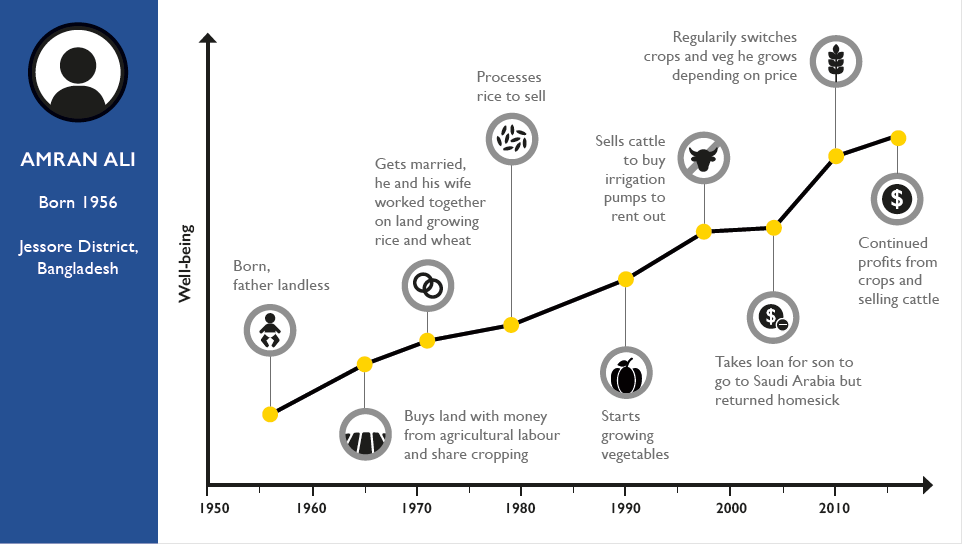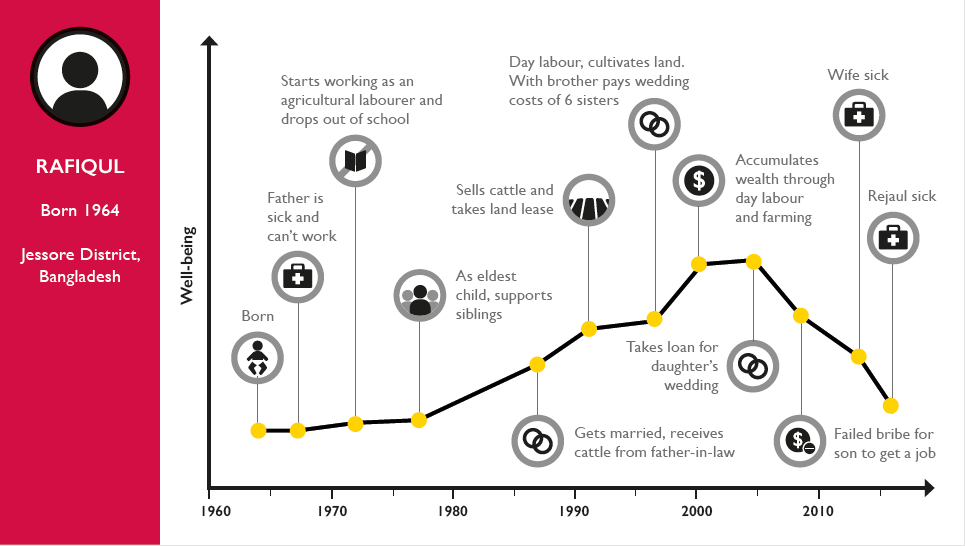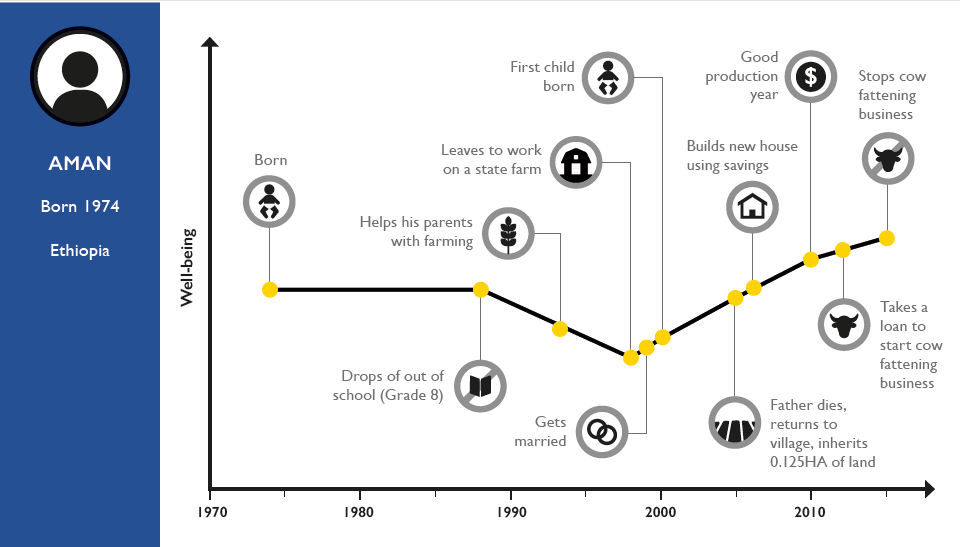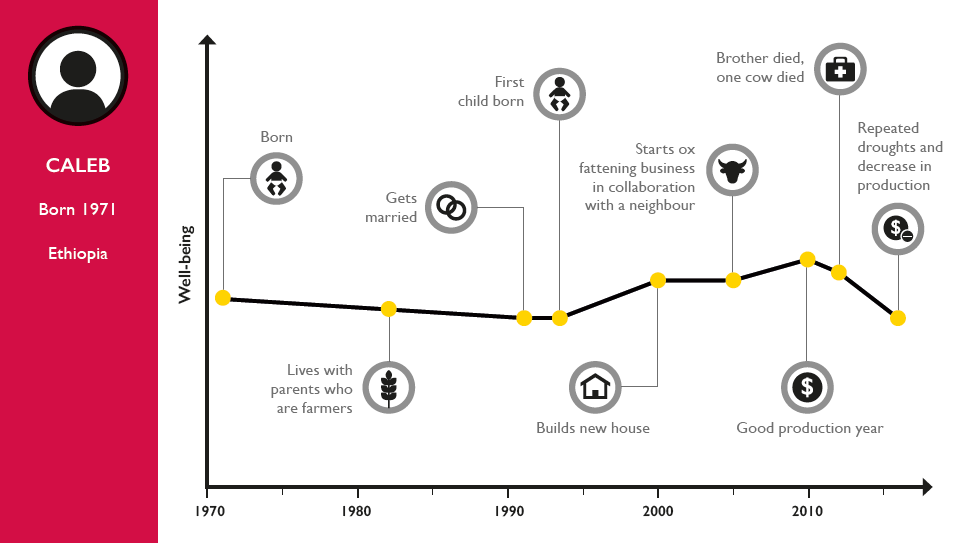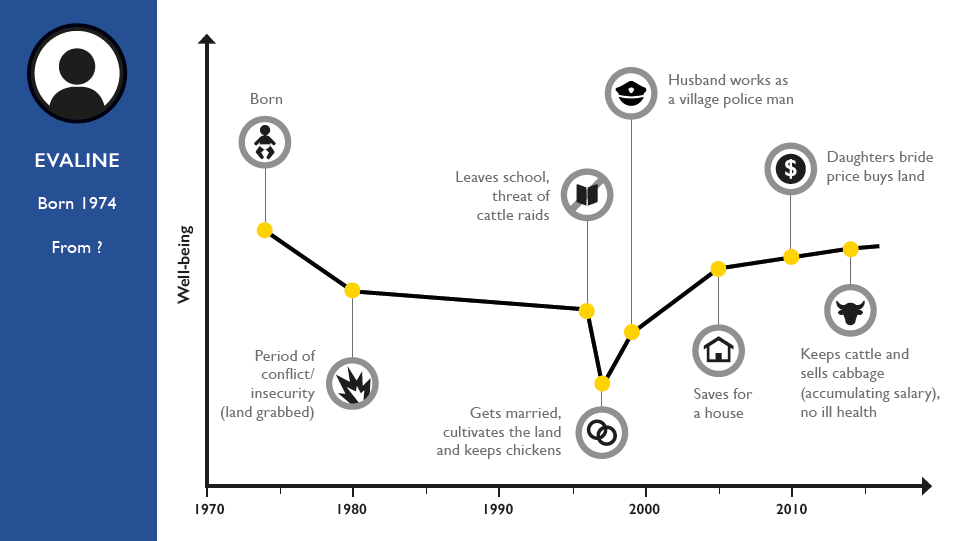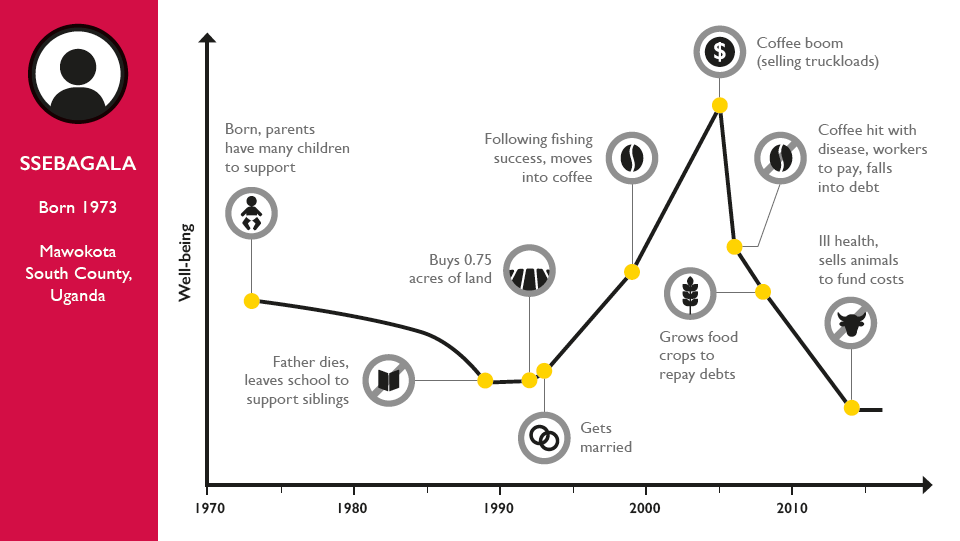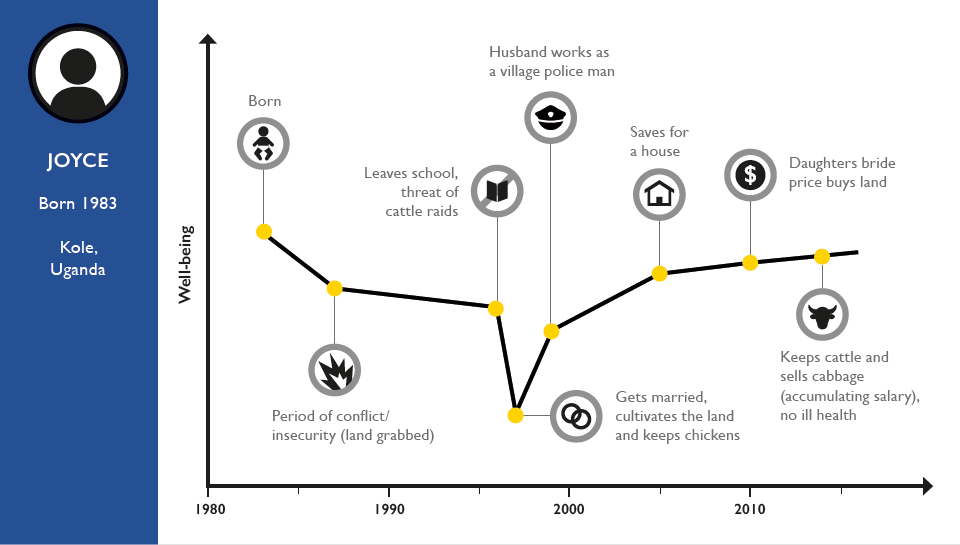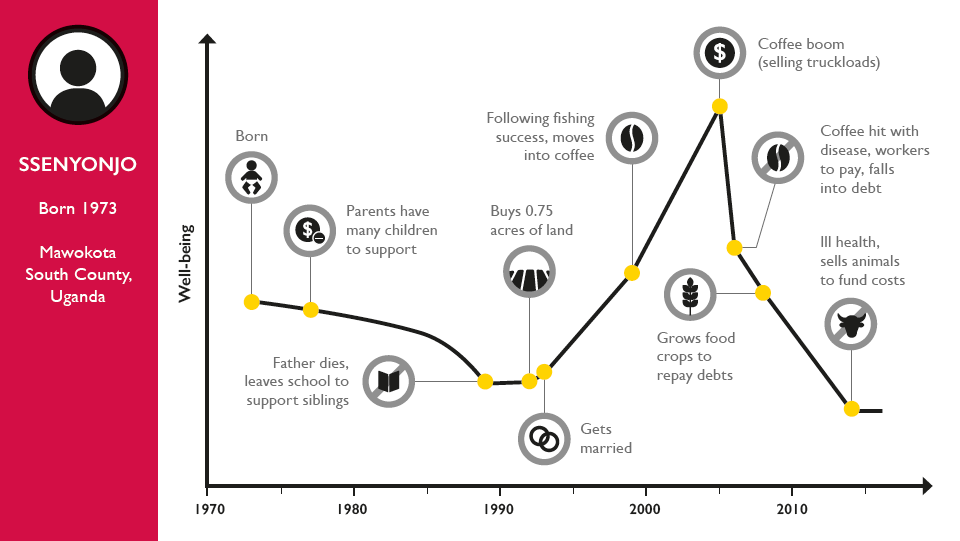Since the start of the year, Lucy Scott (ODI Research fellow), Vidya Diwakar and Chiara Mariotti (CPAN Research Officers) have been travelling to Bangladesh, Uganda and Ethiopia to gather data for the USAID-funded project Ensuring Escapes from Poverty are Sustained. This project, implemented in partnership with ACDI VOCA, aims to understand poverty dynamics at the household level, through a combination of both quantitative and qualitative approaches. In these three countries, a proportion of households escape poverty, only to return to living back in poverty in the future; they are transitory escapers. Climate hazards, illnesses or conflict, for example, are shocks that can negatively affect the wealth and well-being of a household and make it fall back into poverty. Extreme poverty cannot be eradicated unless escapes from poverty are sustained over time and a return into poverty is prevented.
CPAN’s contribution to this project is to understand the drivers of such trajectories and to characterise resilient and transitory escapers. The mixed methods research approach combines panel data analysis with life history interviews, to explore further the causes of transitory escapes. Life-history interviews, which are at the core of CPAN’s research approach, are in-depth individual interviews to identify the most important events during an individual’s life and the potential causes of an increase or decrease in well-being. Complementing quantitative panel data analysis with life history interviews enables the varied drivers of poverty trajectories to be disentangled and to capture the nuances that may not be picked-up in survey data collection.
In collaboration with local researchers, Lucy, Vidya and Chiara undertook focus group discussions and life histories in villages in Bangladesh, Ethiopia and Uganda. Focus groups were used to identify households on different poverty trajectories including those which, over time, experienced sustained poverty escapes or fell back into poverty. Following the focus group discussion, a group of individuals where chosen for the study, based on their poverty trajectories. The personal interviews took place in the individuals’ homes, in a context where they could comfortably share their life experiences. In a recent blogpost, Lucy describes the challenges of leading such discussions as well as the value of their output.
At this stage of the project, the final report on the Uganda case has been published, as well as infographics illustrating life trajectories of interviewed individuals in Ethiopia, Uganda and Bangladesh. The last two final reports and more infographics will be available on the CPAN website in the following months.
Download here the infographics for Ethiopia, Uganda and Bangladesh.
